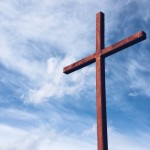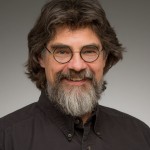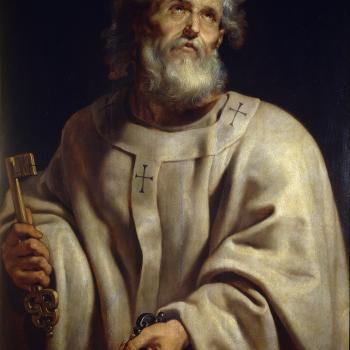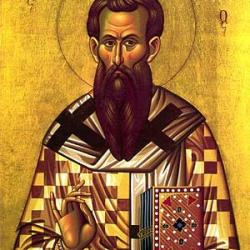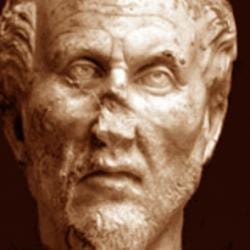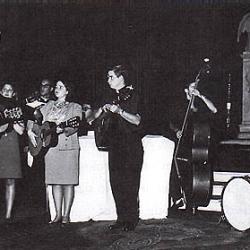 A conversation with Vaticanist Luigi Accattoli
A conversation with Vaticanist Luigi Accattoli
In these last days there have been lots of articles on the anniversary of three years of Pope Francis’ pontificate. Only three years but lots of things to discuss, because Francis is certainly not a Pope that stays put in his Vatican apartment. The impact that Pope Francis has had is so strong that sometimes we tend to forget also the struggle of his predecessors.
Of course, Benedict XVI, being still alive and well, is still very strong in the mind of many and rightly so. But what about popes like John Paul II or Paul VI? Yes, of course they are in our memories but sometimes current events have such a strong impact that those popes’ achievements may fade from our perspective. So it is important to keep in mind the way the Church is undertaking her historical pilgrimage looking also at the immediate past.
To achieve this one needs someone that has had the opportunity to be close to the last Popes because of his particular job; being a journalist allows you to witness in person events and situations that one day probably will be in history textbooks.
Italian journalist Luigi Accattoli has written six books on John Paul II. Born in 1943, from his youth he collaborated with several major journals and magazines as La Repubblica and Il Corriere della Sera (the two most important Italian newspapers). He has written several books and is a sought-after speaker for topics ranging from family to Christian life, from mass media to Catholicism in a modern society and, of course, John Paul II and Pope Francis. He received me kindly in his apartment a few meters from the beautiful Basilica of Saint Mary Major, so dear to the heart of Pope Francis. I was able to ask him a vast range of questions, from John Paul II to Benedict XVI and Pope Francis, from family issues to the current situation of the Church.
How you consider the present situation of the Catholic Church? It is in crisis, recovering or what?
“I find it in a crisis of a secular type, in a change that began two centuries ago with the French Revolution and which impels the Church on the edge of Western civilization. This change has accelerated in recent decades (say, from ’68 to today) and now we are experiencing another period of acceleration of the crisis, which we could call “digital-cybernetic” or “of the world globality.” But the Church is also on the upswing and this might be called “upswing of the new evangelization.” This recovery started with Vatican II and has accelerated with Pope Francis, with the motto: reform of the Church in her going forth”.
What is your impression of what happened in the October Synod of the family in which conflicts between different factions have been seen in a very obvious way?
“I am very satisfied, both about the first and the second Synod. I predict a post-synodal exhortation, which should arrive before Easter and I expect an application to Catholic Church pastoral life with the same criterion that the Pope has taken for the reform of marriages procedures, which will mean a much bigger role for the Bishop. The Bishop – the only judge that will evaluate whether to make a process in accordance with canonical laws or in a shortened procedure – may be deciding the cases in person without the tribunal.
This preeminent role of the bishop is a huge reform, that no one has understood well yet, but changes a tradition of centuries and puts back the Bishop in his right New Testament and patristic position, that is, the Bishop as the ultimate moderator of the local church life. I expect that also for the pastoral care of the family, the Pope will apply this same standard in setting out the exhortation.
Then perhaps there will be the application documents, many issues to be postponed later to other documents but I predict the Pope will give the Bishop this function also in the pastoral care of the family. And even in difficult cases (except for invalidity which are already solved), every time you pose a problem – how to deal with the divorced and remarried who live a journey of penance, conversion, etc. – the confessor has to address the Bishop and the Bishop decides. This decision-making role, direct and wide of the Bishop I think that will be affirmed.
I think these are reforms that the Church needed because the figure of the Bishop was mortified gradually over the centuries, without interruption, until the Pope assumed all the powers and responsibilities; Bishops were sort of local administrators, prefects appointed by the Pope, to apply what the Pope decided. It can not be so, it is not the Church of the New Testament. And now – with the Vatican II and Pope Francis – the strong role of the Bishop is being recovered”.
Over the years you have focused a lot on John Paul II, also writing several books about him. In your opinion, what remains today of this Pope?
“The missionary of the world. Because I believe that the heart of the message of Pope Francis is the missionary spirit, a new mission, which he calls “reform of the Church for her missionary going forth” and having this as a central interpretation of the situation nowadays, I see as the central focal point in John Paul II: his being a missionary in the world. So a kind of special continuity between John Paul II and Pope Francis exists.
If we think of the apostolic and missionary travels of John Paul II who also reaches out to those who are outside the Church: to atheists, non-believers as well as non-Christians – this is a development of that mission. So the missionary element is more alive”.
So you think this is the significant and still relevant element of John Paul II.
“In the first of my six books that I wrote about St John Paul II, released when he was reaching ten years of his pontificate in 1988, one of my essays was entitled “A missionary pontificate.” The book was written (for Mondadori publishers) with a colleague, Domenico del Rio, now deceased (he was the Vatican correspondent of La Repubblica and I was the Vatican correspondent ofCorriere della Sera). It was entitled John Paul II, the new Moses and my chapter was titled “A missionary pontificate;” I have always interpreted it in this way. Now the special missionary emphasis of Pope Francis supports my view that that was the point of novelty and strength of John Paul II”.
In the last three popes (John Paul II, Benedict XVI and Francis) do you see more continuity or discontinuity?
“I see a total continuity between John Paul II and Benedict, I see a strong discontinuity of Francis with all predecessors. But in the discontinuity there are evidently also some elements of continuity. He is not a heretic pope, a legitimately elected Pope and in substantial continuity with its predecessors, substantial, I should point out. But in a discontinuity of forms, language, decision-making, the methods of government, the clothes, the gestures … and this is before the eyes of everyone.
Then, about the continuity of John Paul II with Benedict it also seems to me that you can point to the fact that the latter was elected with the obvious intention of completing the work of John Paul II, completion and maybe doctrinal correction or adjustment by a conclave where all were appointed by John Paul II and who chose as Pope the longest-serving employee, close to John Paul II, which was precisely Cardinal Ratzinger. So in this case the continuity was planned, was willed, intentional on the part of the conclave”.
And what do you think of Catholic authors such as Antonio Socci, who see in the papacy of Francis a strong discontinuity sometimes beyond certain allowed boundaries?
“I respect the opinions of others, but in this case I think that they are wrong”.
There is more to talk about the issues at stake, especially about John Paul II, Pope Francis and Pope Benedict. It is interesting here to point out this emphasis that Accattoli puts on the continuity between Popes (with also some discontinuities) and how different personalities may shape the destiny of the Church in a different way, but always keeping in mind that the Church is not like any other human society, that it is always in the hands of Jesus, the only Founder and Head of the Body of Christ. If the Church were a human achievement we may be in trouble but we know that Jesus has assured us that he will be with us until the end of time.
Talking with Luigi Accattoli, a veteran Italian vaticanist, I was very interested about something very peculiar in him: his memories of John Paul II. Yes, it is true that he has written extensively about this Pope and that he has had the opportunity to meet him so many times because of his work, but certainly there is something more.
We may imagine that the memory of this Pope being linked with something deeply personal for the Italian journalist. And indeed that is the case, as we will see in these other questions that I put to him. I asked about John Paul II, but also about Benedict XVI, I touched a little on Humanae Vitae to end with one of the hot topics in today’s debates: the Vatican and China.
You have written extensively about John Paul II and got to know him well; could you reveal some personal memories of this Pope?
“Of course I have many memories of him, because I went with 85 of his 104 apostolic pilgrimages around the world and then for 85 times I greeted him or I asked a question, because that’s what was done [by accredited journalists]. A memory worthy of being told is related to the morning Mass.
It was in 1990. I had my dying wife (later deceased of an incurable disease) and four children (later I got married and now I have another child with my new wife), and at that time the Pope was reading my book (written with Domenico del Rio) entitled John Paul II, the new Moses.
During an apostolic visit the Pope asked Joaquin Navarro Valls [then spokesman of the Holy See] if the authors of the book were on the plane. Navarro Valls said that there was one; the other was not there because he had a sick wife.
Then the Pope asked me to be invited (because has spoken on the plane with del Rio) to his Mass in the morning . I went with the wife and kids and it was a very emotional encounter. My wife was seriously ill and so she had come with a lot of effort but could still walk. The Pope gave her the blessing and to me he said that he had read the book and wanted to thank me for my efforts to understand. Here it is, this is the particular memory”.
In your opinion, what will remain of the pontificate of Benedict XVI?
“The theology of love: Deus Caritas Est, and the repeated statement – on many occasions – that God is love and only love. This is in perfect correspondence with the pastoral of mercy of Pope Francis, who says that God is mercy and all mercy, where mercy and love are, from the point of view of the papal speech, intentional synonyms. Then, The Name of God is Mercy, this is the title of the book by Pope Francis which incorporates a sentence of Benedict XVI. Here there is continuity.
I am looking at the Popes for deep continuity: with John Paul II it is the missionary work, with Benedict XVI it is the theology of love. From Benedict will remain this: having being able to go deep – being a Pope theologian – in Christian thought and stating that this must be calibrated in today’s world on the element of love. God is love, and it is the message that humanity today can understand. Francis takes this, he is in debt for that, and uses the expressions, where the one says, “God is all love,” he says, “God is all mercy;” where the other has said “God is mercy,” he makes mercy the program of the entire pontificate”.
But it is impossible to deny that Francis is a Pope that is very divisive: excites certain sectors of the Church while others criticize him for what they see as excessive openings. What do you think of this?
“I think there are three levels of critical opposition, because of certain aspects more marked than in his predecessors, which I analyze in the following manner: one level is the opposition common to all the Popes – all the Popes meet some opposition. To entrust to a single person, a “single word,” of the government of a complex reality like the Catholic Church in the world and that affects hundreds of millions of faithful is an impossible task and so there will be always a margin that tries to be subtracted or who try to escape.
Just think of Pius XII, John XXIII, Paul VI, so to speak … they all met with strong opposition and that for one reason or another: because in Pius XII they had seen an excess of conservatism, in John XXIII they had seen an excess of openness (“He’s crazy, he has convened a council!”); in Paul VI they had seen an excess of reforms, that Paul VI had to cease to make reforms, frightened by the opposition that suffers.
John Paul II was identified as the Polish Pope who does not understand the Western world, who does not appreciate the democracies, who supports dictatorships … that was told for a long time even if in the end that opposition was fading. But the pontificate lasted almost 30 years. If it had lasted for 15 years it would have ended up with a very strong opposition.
Benedict has had an opposition documented in volumes on why this Pope was attacked, … written by the same people that now are philosophizing from the opposite side.
So all the Popes are disputed, there is no wonder. There is a surplus of protests with Francis because he resumed reforms: all the Popes are contested, the reformers Popes are [contested] twice. There is an ancient reflex in the Catholic Church, in all the Churches, that you should not change because change is risky and therefore those who change will have troubles.
Now, the last Pope to make reforms was Paul VI who froze them in the presence of a manifest opposition. Francis takes the reforms where Paul VI left them. Take the example of the Synod: Paul VI had set up the Synod, then it always [worked] in the same way, [but] now it is changing. The reform of the Curia began with Paul VI, then the Curia remained the same for 45 years with only marginal changes until Francis starts to reform it again [such as] the reform of finances and many other reforms that now are starting again.
The third element of opposition: the Popes tried to mitigate the resentment of those who did not agree with them through their language. Pope Francis does not care about this, and with a freedom perhaps to be ascribed to the well-known freedom of spirit of the Jesuits, who even argue with opponents openly. This, of course, firmly roots them in their criticism”.
I feel that you seem of the opinion that the world today, the Church of today, needs different answers from those that were given, for example, in the Humanae Vitae of Pope Paul VI.
“Undoubtedly. But is not the problem of Humanae Vitae. I would not put it as the core of the problem. The world today needs new answers because it is no longer the world to which this Church was thus organized. You could say this for all the historic churches, although now we are talking in particular of the Catholic Church. It is organized according to a traditional European model of the established Church (as I call it) in the European tradition, normed by the Council of Trent, which only applied in Europe (and almost only Latin Europe and therefore not in the world). But it was a very strong and important experience for four centuries, from Trent to Pius XII.
This Church presupposed the coincidence with society (societas perfecta), all were baptized and laws had to correspond to the ideas of the Church, etc .. This is no more. the world is no longer like this. The ninety-nine sheep are not inside but outside the Church, and the Church must speak absolutely a new language, must have new rules to reach to this humanity that is outside; otherwise it will not go and where she will go, she will not be understood”.
One of the great themes of these days has to do with the Holy See and the Chinese government. What do you think of this complex situation?
“I look at the situation where the Pope is a Jesuit. He is in many moments a Jesuit, also in that freedom of spirit with which he argues with his opponents and even in the continuous evoking of the devil, of confession, conversion; in the threats, the invectives for those who do not convert, those who are corrupt or people linked to organized crime. In many ways he is a Jesuit, but particularly with China. Francis is doing everything possible, as once the Jesuit Matteo Ricci did, to enter China. And I think he might be able to conclude a diplomatic agreement and perhaps even to make a visit to the Chinese Catholics”.
As for this last statement, as we say in Italy, chi vivrà vedrà that means that those who will be alive will be able to witness this event (or not).
(February 2016, first published in O Clarim, Macau, China)

